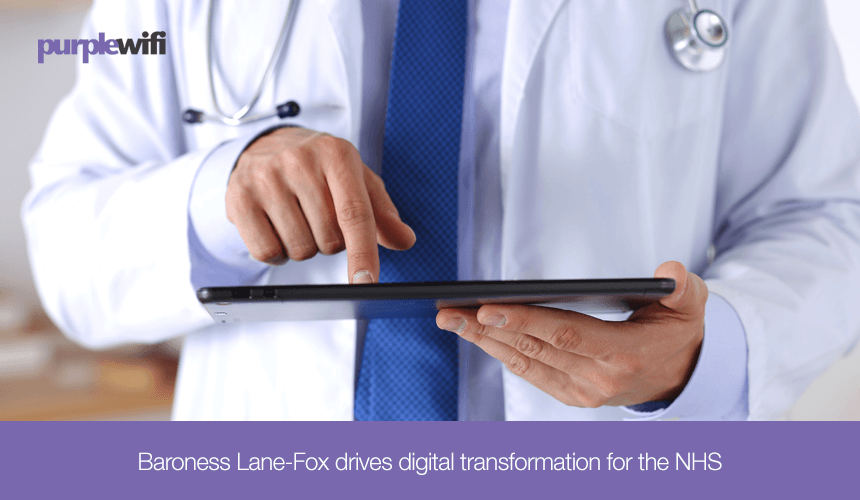This week Baroness Martha Lane-Fox suggested serious technological changes to the NHS in her detailed review for the government. In July 2015, Jeremy Hunt tasked Baroness Lane-Fox with job of considering the digital future of the NHS.
Released on the 10th December, the document makes recommendations which included free WiFi for patients, digital skills for doctors and online GP appointment bookings.
“Far from removing face-to-face contact, they can and should focus on improving people’s outcomes and experience of health and social care always starting with what they need and want,” wrote Lane-Fox in a letter to the Health Secretary, Jeremy Hunt.
Within the proposal, Baroness Lane-Fox outlined four key recommendations which should be implemented by the Department of Health to help deliver a digital NHS for the future:
- Digital inclusion
Firstly, Lane-Fox recommended that digital projects must be designed to “reach the furthest first”, meaning the 16% of UK households who don’t have access to the internet.
Lane-Fox went on to say that; “These figures are shocking and we must ensure that those with the highest health and social care needs are able to benefit from the massive potential the network age brings for health.”
- Free WiFi service
Hospital WiFi has many improvements to make and is not an enjoyable experience for the user. UK hospitals provide a very slow and tedious service which is preventing the patient’s ability to stay in touch with family and friends.
“Free WiFi is a public amenity and should be available in health and social care settings… Critically, it would provide an access point for people to discover and use health digital tools, resources and information when their health is likely a central focus on their mind,” Lane-Fox explained.
WiFi is one of the main requests from junior doctors, whose administrative duties take up around 70% of their day. WiFi would give them the ability to be more flexible with their work.
Doctors are already calling for free WiFi in hospitals, Lane-Fox says it should be standard across the NHS.
These recommendations have been welcomed by Purple WiFi, who are active within the healthcare sector, providing social WiFi in hospitals, doctors’ surgeries and dental practices.
- Digital Doctors service
Building digital skills among doctors is extremely important and can help them spend less time troubleshooting and more time on their patients.
“Firstly, it would enable health care workers to support people to engage with digital services and tools to promote take up and engagement,” wrote Lane-Fox.
“Secondly it would support health care worker’s own professional development and engagement with new ways of working as the digital revolution progresses and work patterns change.”
- Technology for GPs
There are already many GPs offering services like online booking of appointments or repeat prescriptions, however the majority of people are still not aware of it.
Lane-Fox says every GP should have at least 10% of its patients using online services by March 2017 and 90% of patients by 2025.
“To date limited understanding of the evidence around the effectiveness of digital health and new technology and a lack of understanding about what exists are likely to have been key barriers to progress,”
Lane-Fox presented her recommendations to the National Information Board of the Government’s health, social care and local government leaders, who are expected to agree.
You can read more on this article: Baroness Martha Lane-Fox to bring digital innovation to the NHS
Related links
